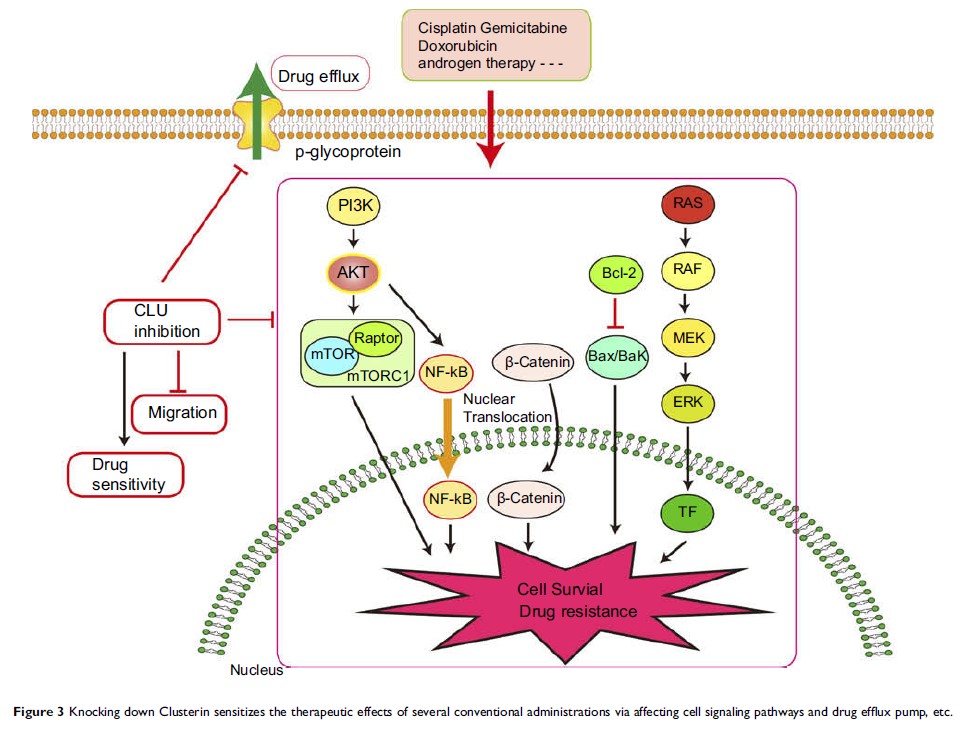9 7 8 1 6
论文已发表
注册即可获取德孚的最新动态
IF 收录期刊
- 3.3 Breast Cancer (Dove Med Press)
- 3.4 Clin Epidemiol
- 2.5 Cancer Manag Res
- 2.9 Infect Drug Resist
- 3.5 Clin Interv Aging
- 4.7 Drug Des Dev Ther
- 2.7 Int J Chronic Obstr
- 6.6 Int J Nanomed
- 2.5 Int J Women's Health
- 2.5 Neuropsych Dis Treat
- 2.7 OncoTargets Ther
- 2.0 Patient Prefer Adher
- 2.3 Ther Clin Risk Manag
- 2.5 J Pain Res
- 2.8 Diabet Metab Synd Ob
- 2.8 Psychol Res Behav Ma
- 3.0 Nat Sci Sleep
- 1.8 Pharmgenomics Pers Med
- 2.7 Risk Manag Healthc Policy
- 4.2 J Inflamm Res
- 2.1 Int J Gen Med
- 4.2 J Hepatocell Carcinoma
- 3.7 J Asthma Allergy
- 1.9 Clin Cosmet Investig Dermatol
- 2.7 J Multidiscip Healthc

Clusterin 在癌症转移中的作用
Authors Peng M, Deng J, Zhou S, Tao T, Su Q, Yang X, Yang X
Received 4 December 2018
Accepted for publication 28 February 2019
Published 27 March 2019 Volume 2019:11 Pages 2405—2414
DOI https://doi.org/10.2147/CMAR.S196273
Checked for plagiarism Yes
Review by Single-blind
Peer reviewers approved by Ms Justinn Cochran
Peer reviewer comments 3
Editor who approved publication: Dr Chien-Feng Li
Abstract: Clusterin
is a conserved glycoprotein that has been characterized from almost all human
tissues and fluids and plays a key role in cellular stress response and
survival. Recently, research efforts have been contributed to explore the
function of Clusterin in cancer metastasis, which is particularly important to
design the strategies for treating metastatic patients. Evidence collected has
demonstrated that Clusterin is overexpressed in tumor metastatic patients and
experimental metastasis models. Specifically, Clusterin has been shown to have
the role in anti-apoptotic capacities, development of therapy resistance and induction
of epithelial–mesenchymal transition, all associated with cancer metastasis.
Inhibition of Clusterin is known to increase the cytotoxic effects of
chemotherapeutic agents and improves advanced cancer patients survival in
clinical trials. Our unpublished data have demonstrated that Clusterin is
overexpressed in bladder cancer and metformin, a well-known metabolism
modulator specifically targets Clusterin by inhibiting migration of bladder
cancer cells. In this review, we provide a general view of how Clusterin
modulates cancer metastasis and update current understanding of detailed
molecular mechanisms underlying of Clusterin for developing cancer management
in future.
Keywords: Clusterin,
metastasis, EMT, apoptosis, drug resistance
